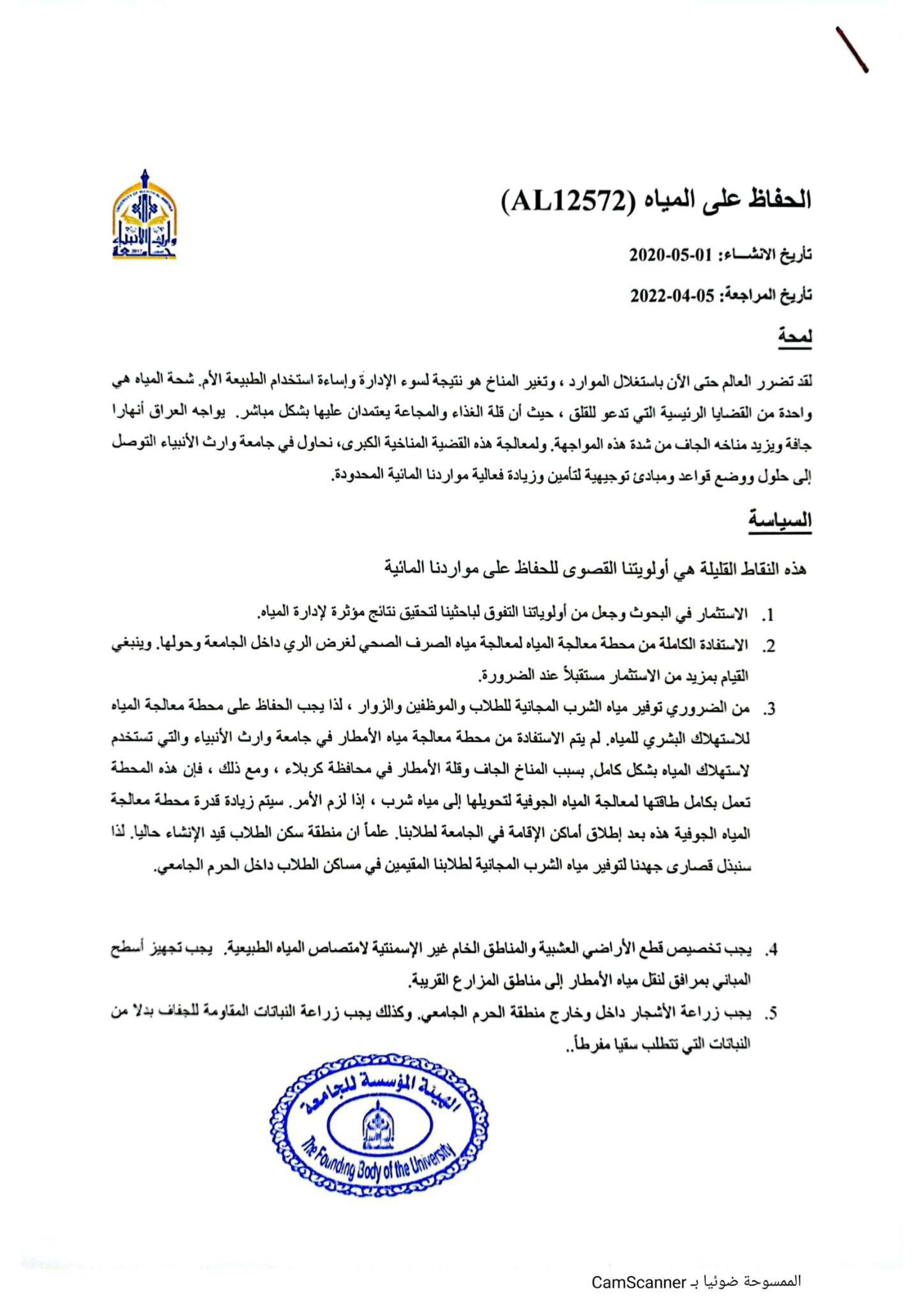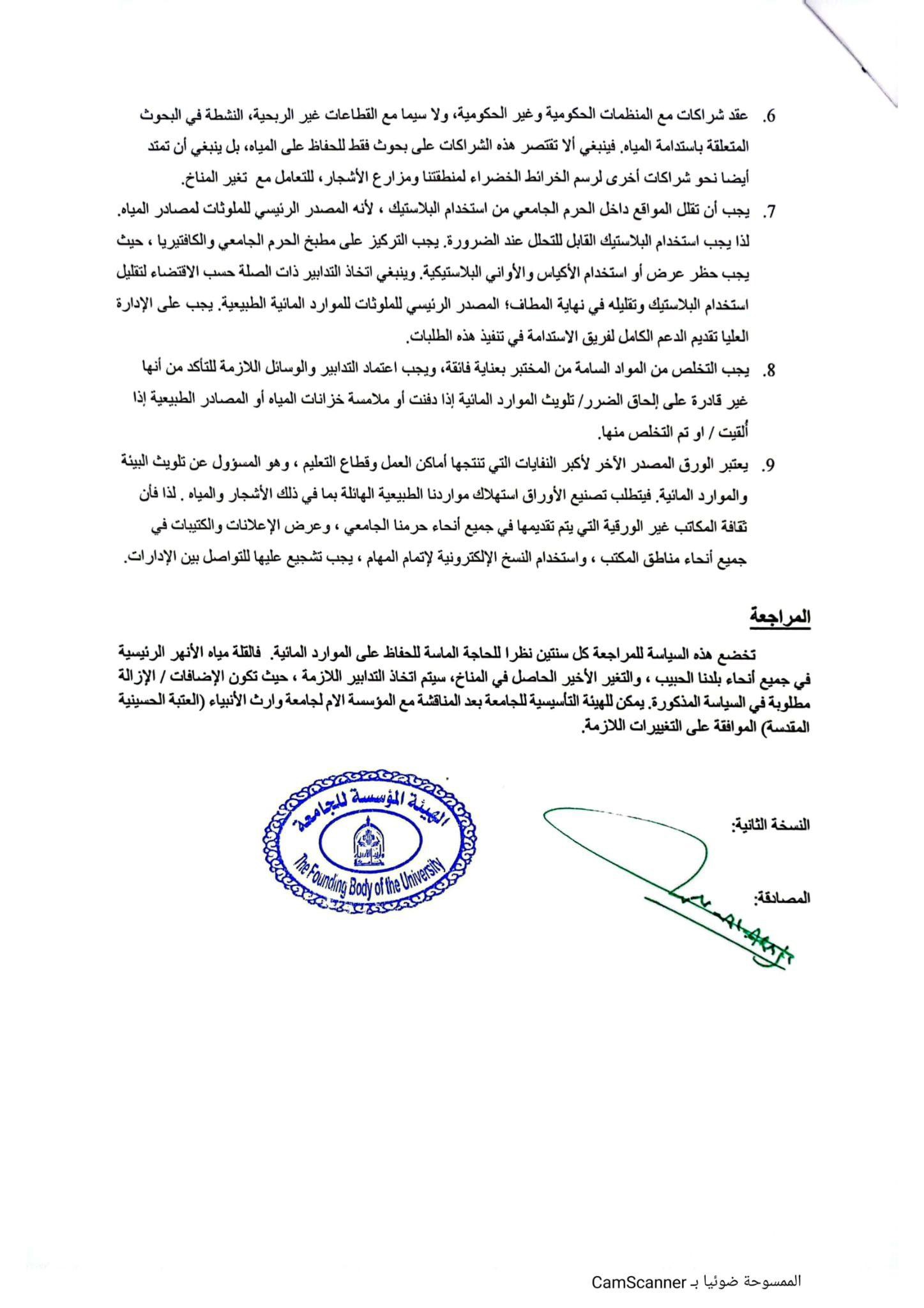Warith Al-Anbiyaa’s Water Consumption Report
University of Warith Al-Anbiyaa is located in Karbala, Iraq, an arid region. Due to climate change and being originally from a desert-based area, the University of Warith Al-Anbiyaa does not have groundwater reserves inside its premises, University purchases untreated lake/ground water and treats it at on-campus filtering plants. The university has two water treatment plants, their details are given below,
1: Treatment 1 for Human Consumption: One of the two treatment plants is for treating lake/ground water into safe enough water for human consumption, this water is used in toilets, and the same water is then again filtered for drinking purposes
2: Treatment 2 for Plants Irrigation: The other treatment plant is for treating water from sewerages to recycle it for irrigation purposes, and for watering university lawns, trees, and plants.
Annual Water Consumption
Population: 5200
Water Tank Size: 14.4*14.4*4.8= 995.328
Filled Days/year: 203 Days approx
Water Consumed/Year: 995.32*(203 days approx)= 201248 to 202050 meter cube
Water Conservation On-Campus
Toilet type: Flush-less toilets
Irrigation: From recycled sewerage water
Saving Water: Smart Irrigation system, sensors in the soil, which asses the water requirement of plants from soil and then water them accordingly, an automatic mechanism, this way we are using minimum water possibly required for irrigation purposes.
Drought-Resistant Plantations: We are planting drought-resistant plantations and trees that have little to no need for daily irrigation, in an order to save more water daily
Water Absorption: Most of the land is soil-based for absorbing rain waters, this includes lawns, nursery areas, and newly bought land for university.
Conclusion:
The university's estimated annual water consumption is 201248 to 202050-meter cube, which is relatively low for a population of 5200 people. This is due to the university's water conservation efforts, such as flush-less toilets, recycling sewerage water for irrigation, smart watering systems
Recommendations:
The university can also explore opportunities to collect and use rainwater for non-potable purposes, such as watering landscaping and flushing toilets.
● Safeguarding Water Resources for a Sustainable Future
At the University of Warith Al-Anbiyaa, our commitment to SDG 6 is paramount. This goal emphasizes the importance of clean water and sanitation for all. In pursuit of this objective, we have undertaken a series of initiatives aimed at responsible water management within our campus.
One significant initiative is the implementation of smart irrigation systems. These cutting-edge technologies allow us to optimise water use for irrigating the green spaces across our university premises. By intelligently controlling irrigation cycles and minimizing water waste, we not only conserve this precious resource but also ensure that our landscapes remain vibrant and well-maintained. Through this, we actively contribute to the overarching
goal of SDG 6 – ensuring the availability and sustainable management of water and sanitation for everyone.
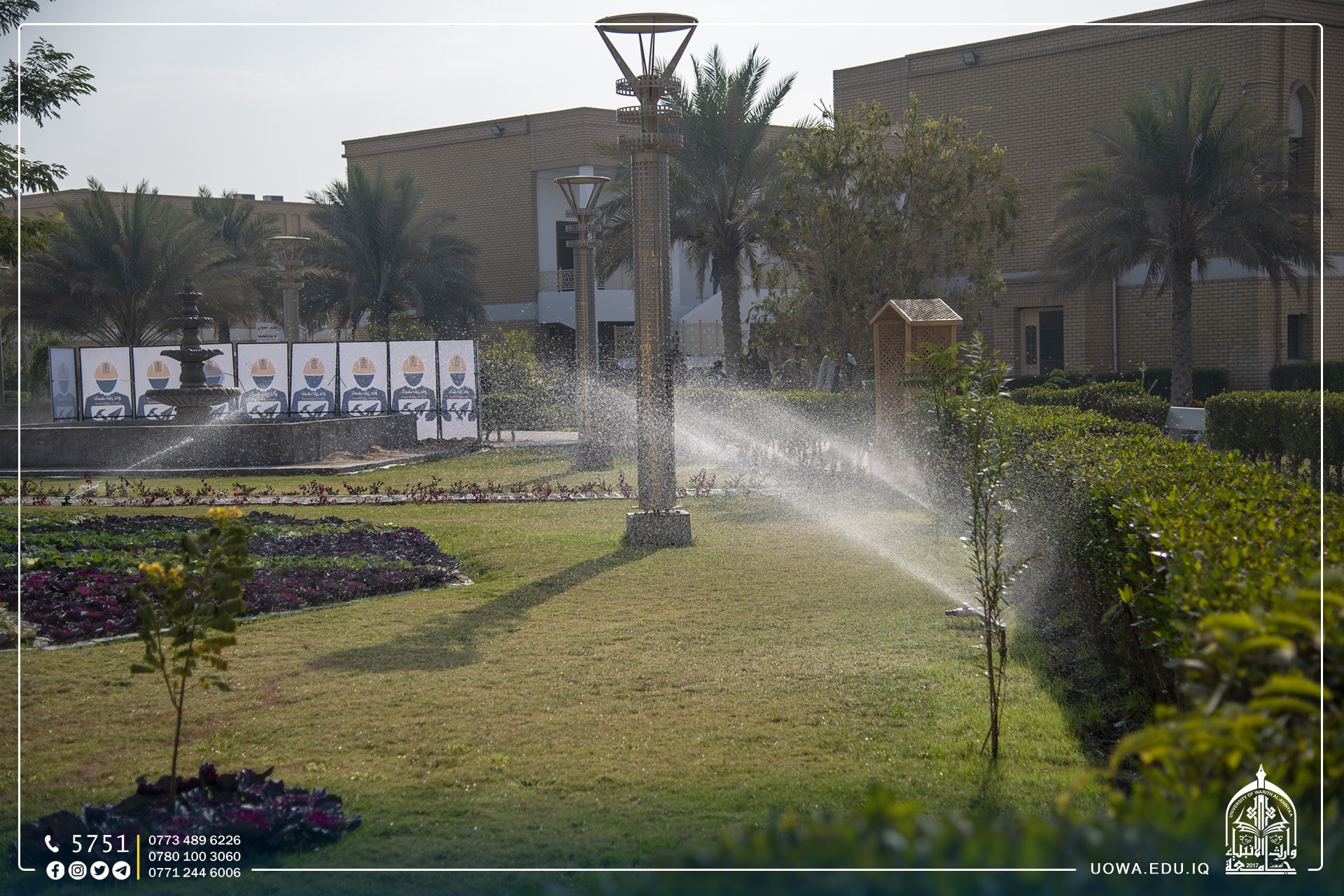
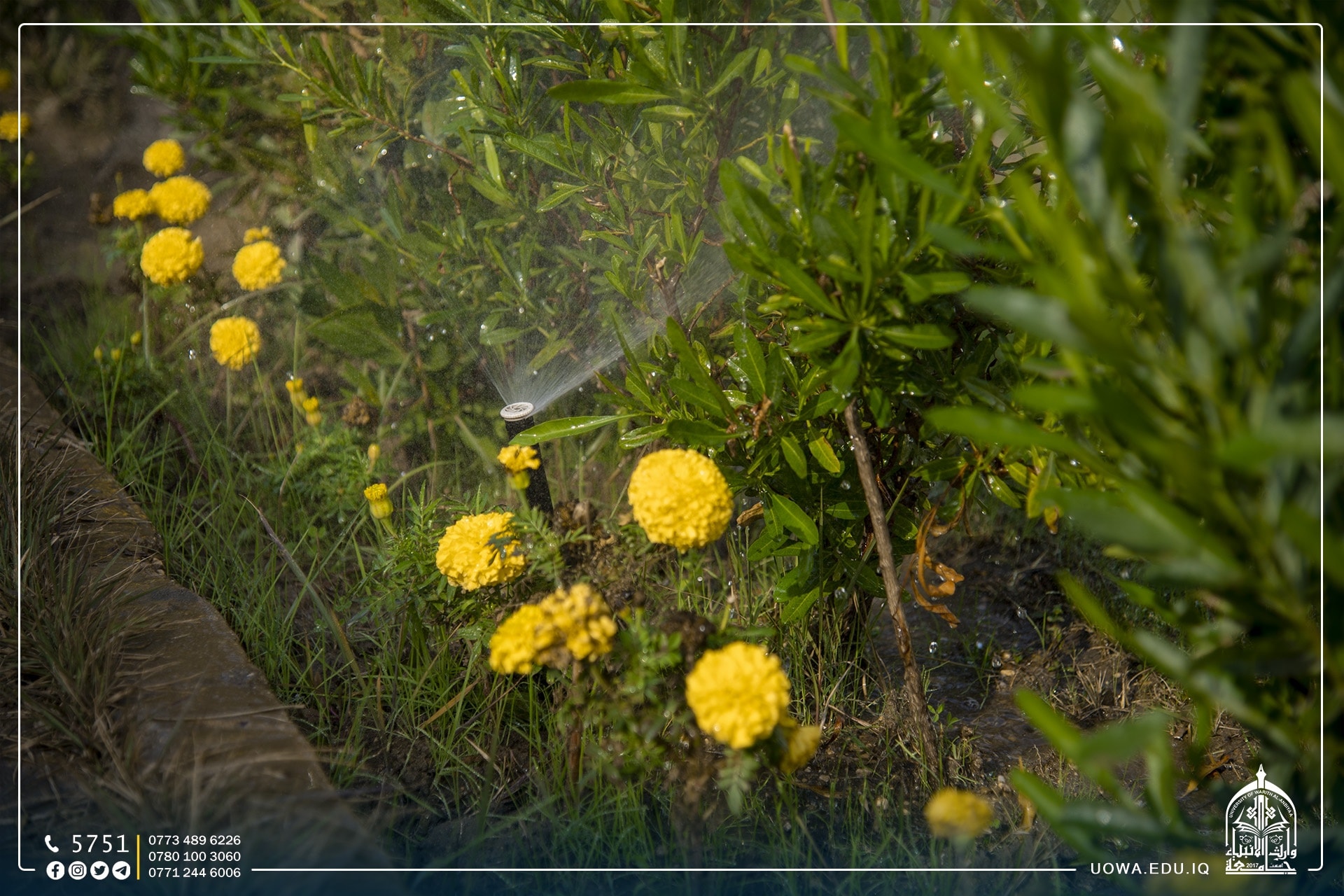
● Sustainable Green Oasis in Karbala: Our Water-Wise Journey
Nestled in the arid landscape of Karbala, Iraq, the University of Warith Al-Anbiyaa has undertaken a remarkable initiative to nurture green spaces while responsibly managing water resources. Recognizing the scarcity of water in this region, we have committed ourselves to SDG 6 by establishing thriving nurseries within the university's premises.
Here, we cultivate a diverse range of seasonal and perennial plants, carefully chosen for their ability to thrive in dry, arid conditions. Our commitment extends to modern irrigation techniques that prioritize water conservation, ensuring that every drop is used efficiently. By selecting flora that requires minimal water, we actively conserve this precious resource while simultaneously contributing to the greening of our environment.
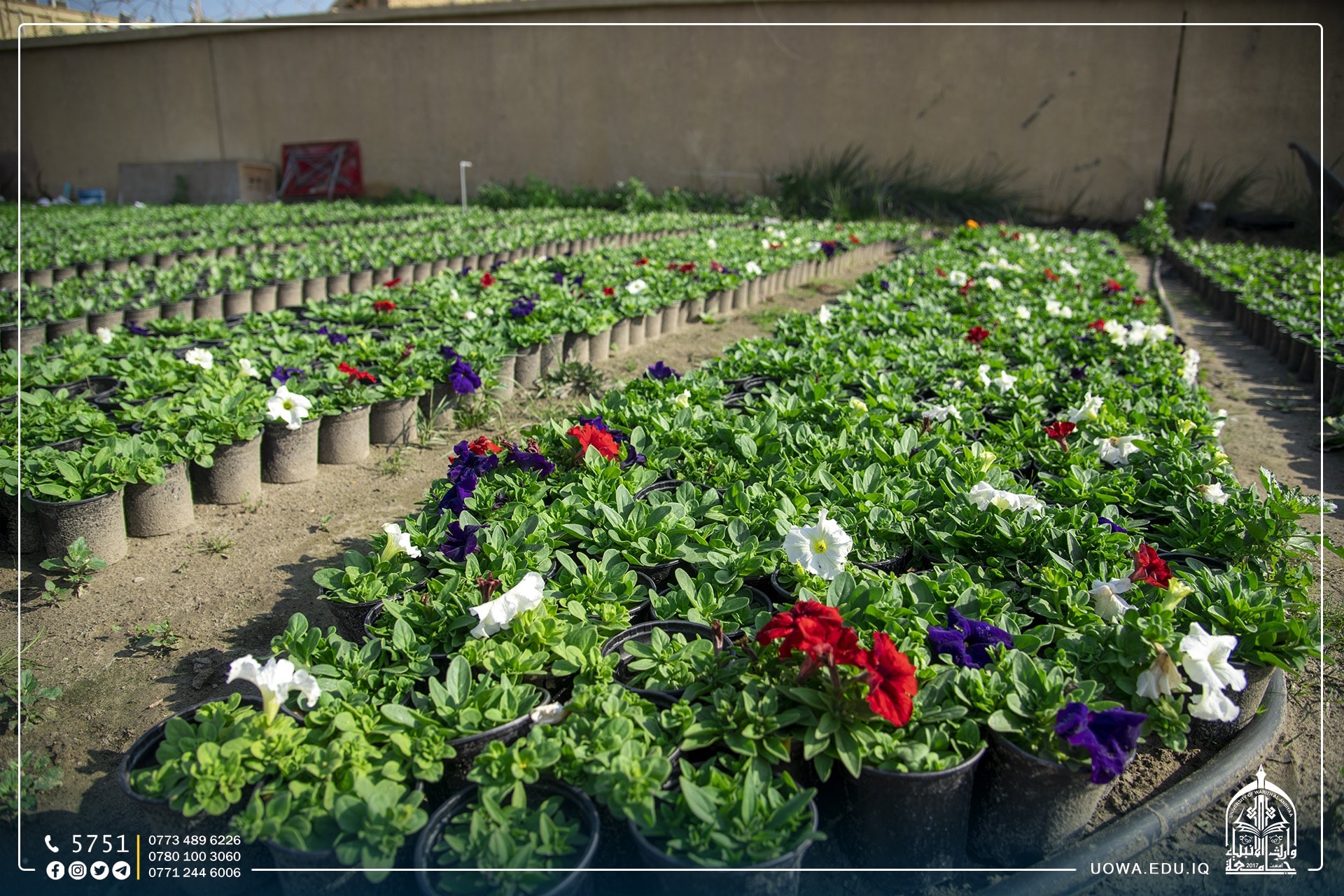
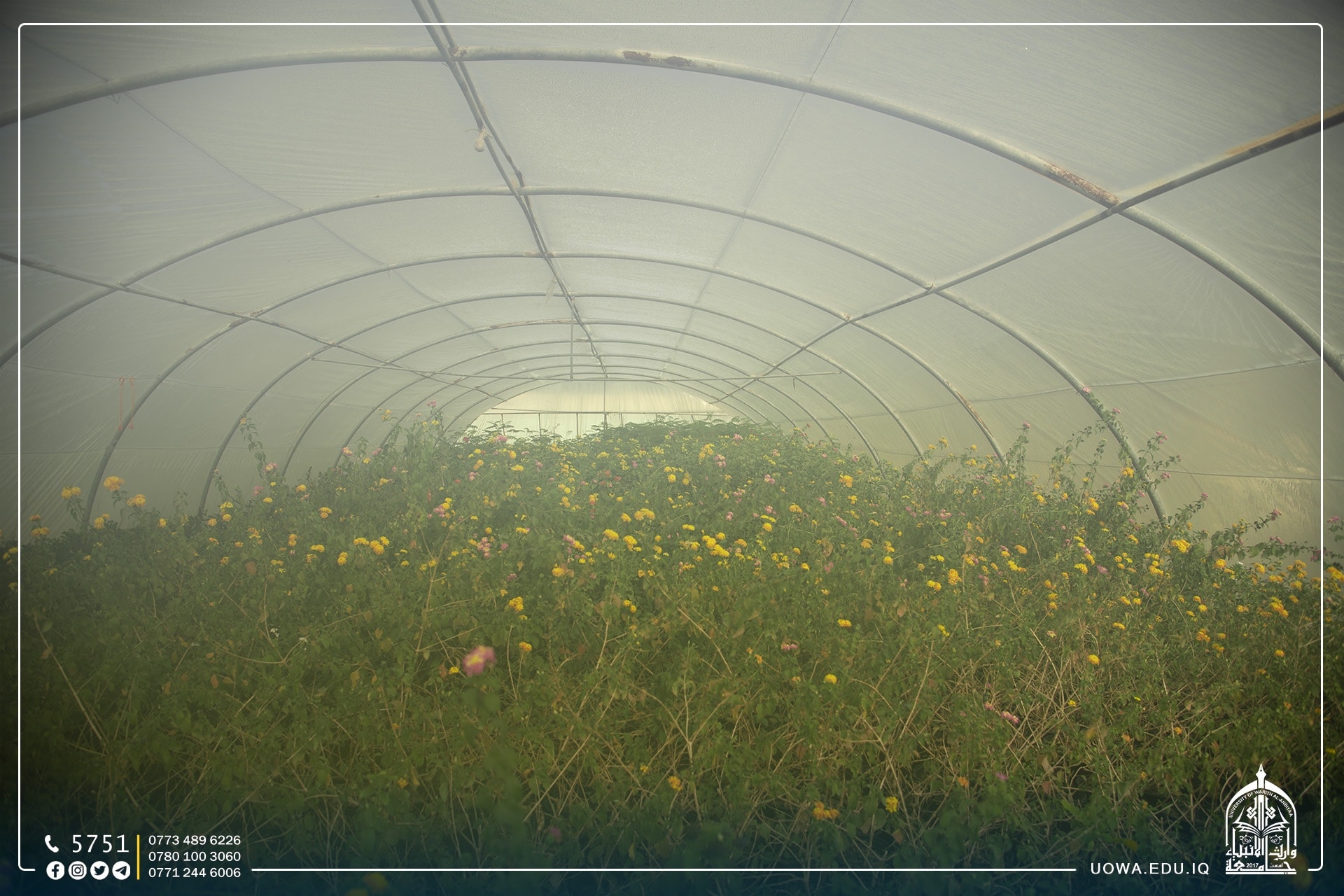
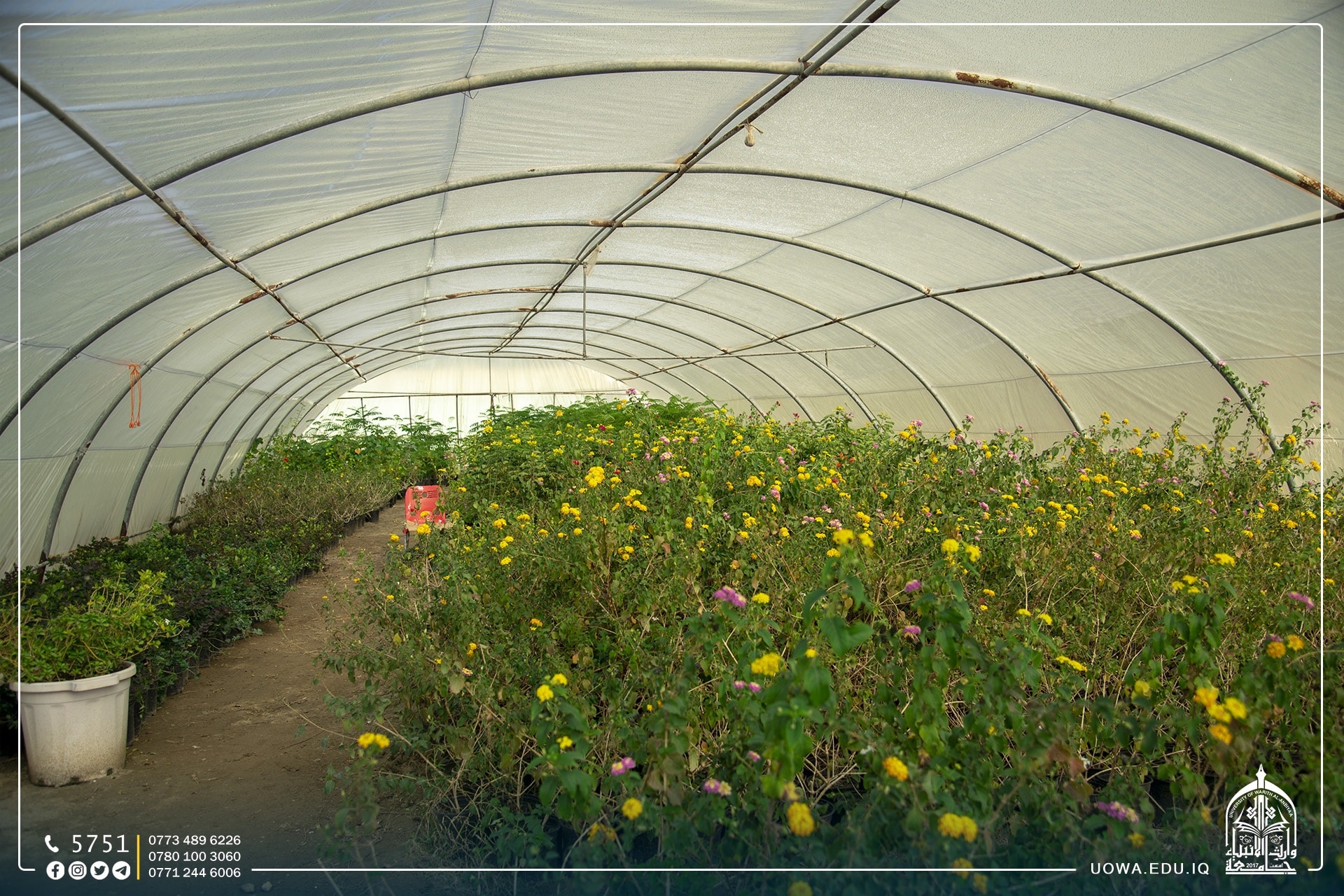
●Water Conservation/Recycling Program On Campus
1.Conservation
All the buildings of the University of Warith Al-Anbiyaa have a separate sewerage system, for wastewater and for clean water. Rainwater is thus collected from the roofs of the buildings and is then discharged into the local ponds and canals around the buildings. Thus, the rainwater is collected from the roof, parking areas, and other places at the campus and discharged the rainwater into the ponds and channels at our campus. Rainwater is mainly used for watering the green lands at the university and for fountains.
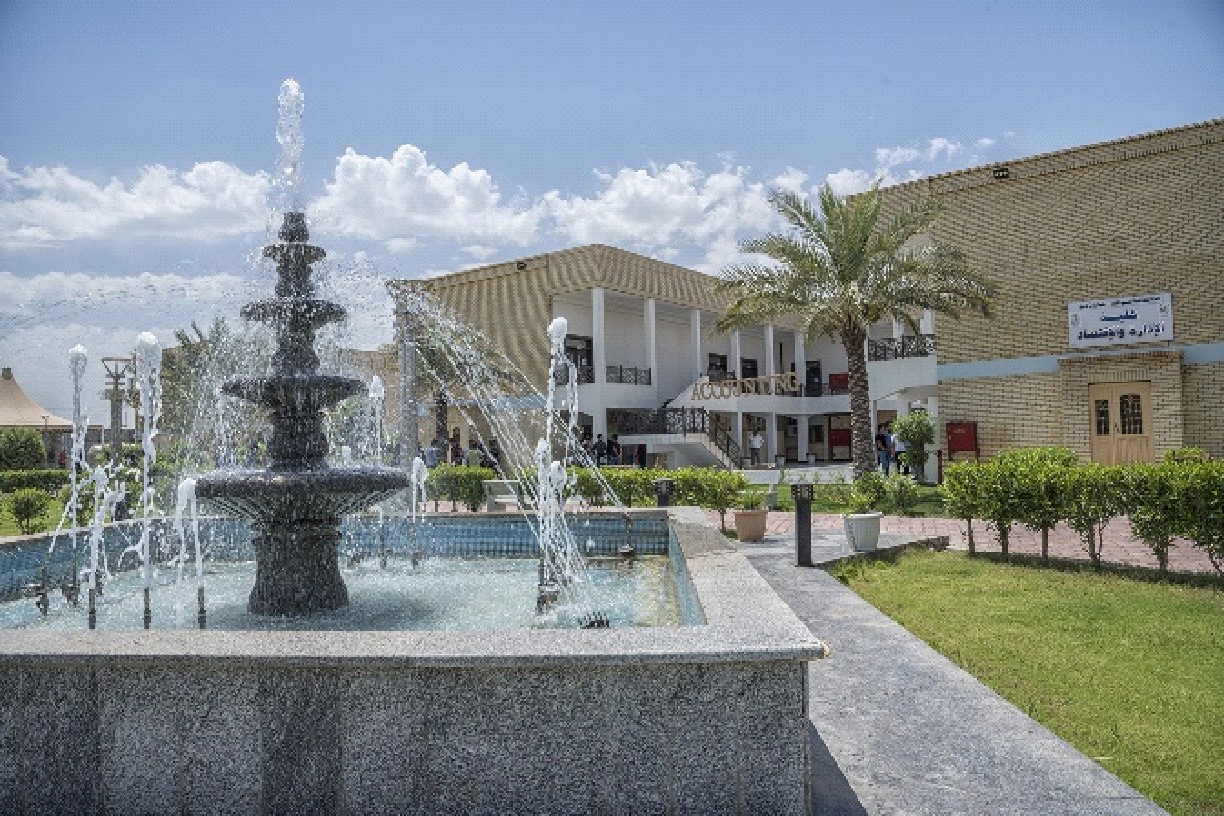
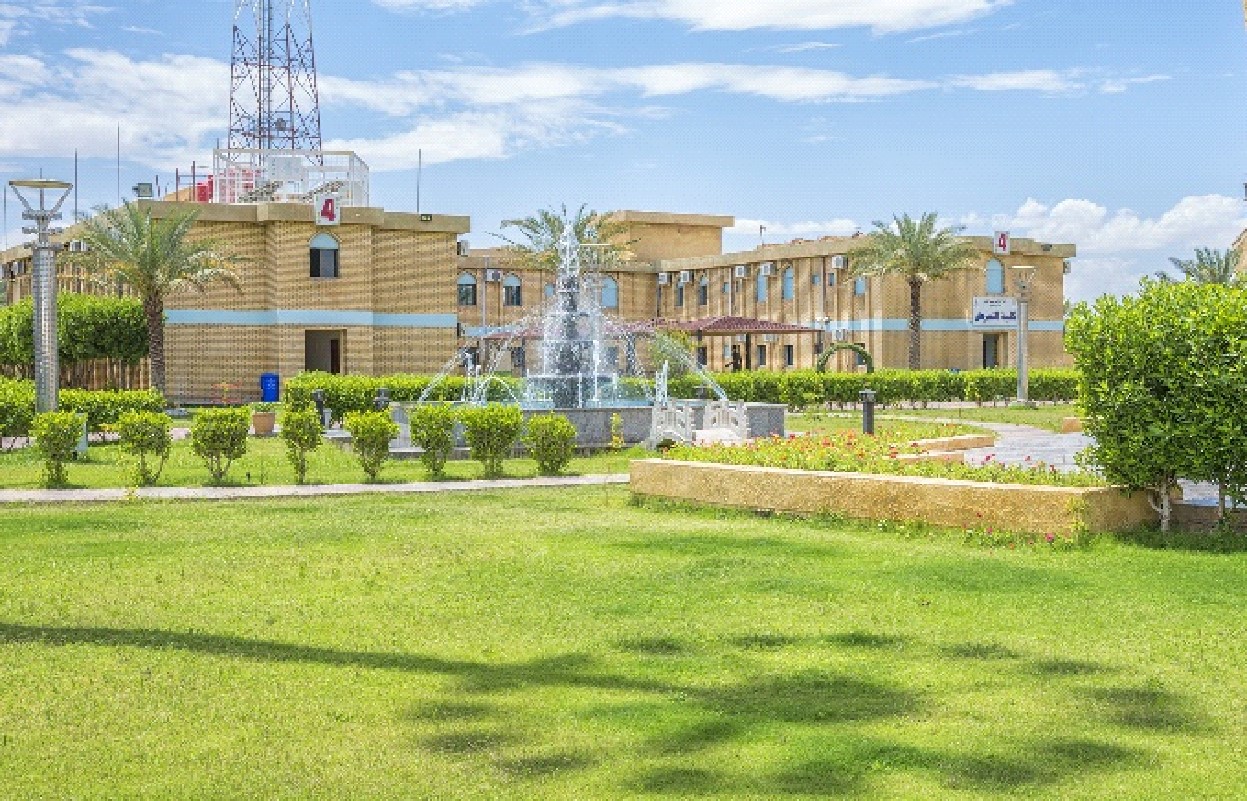
2.Recycling
There is a water treatment plant located right beside our campus area. Although Iraq has a dry climate and doesn’t see much rain, especially since our city Karbala has been hit severely by the impact of climate change, we haven’t seen much rain in the last years, so the amount of rainwater in Iraq is not that much in comparison with other countries; however, when there is rainwater it is discharged directly to university gardens for watering the trees and plants, for the garden sprinkler system and fountains. And as clean drinking water is necessary for sustaining life and due to the contamination of natural freshwater sources, the University of Warith Al-Anbiyaa has an integrated system to purify water at the campus. The water system at the university help in improving the process of transforming wastewater into a clean and recyclable source of drinking water. In this system, the water runs through a series of water filters to remove contaminants and debris and transform wastewater into safe drinking water, water treated by this plant is consumed by students and staff.
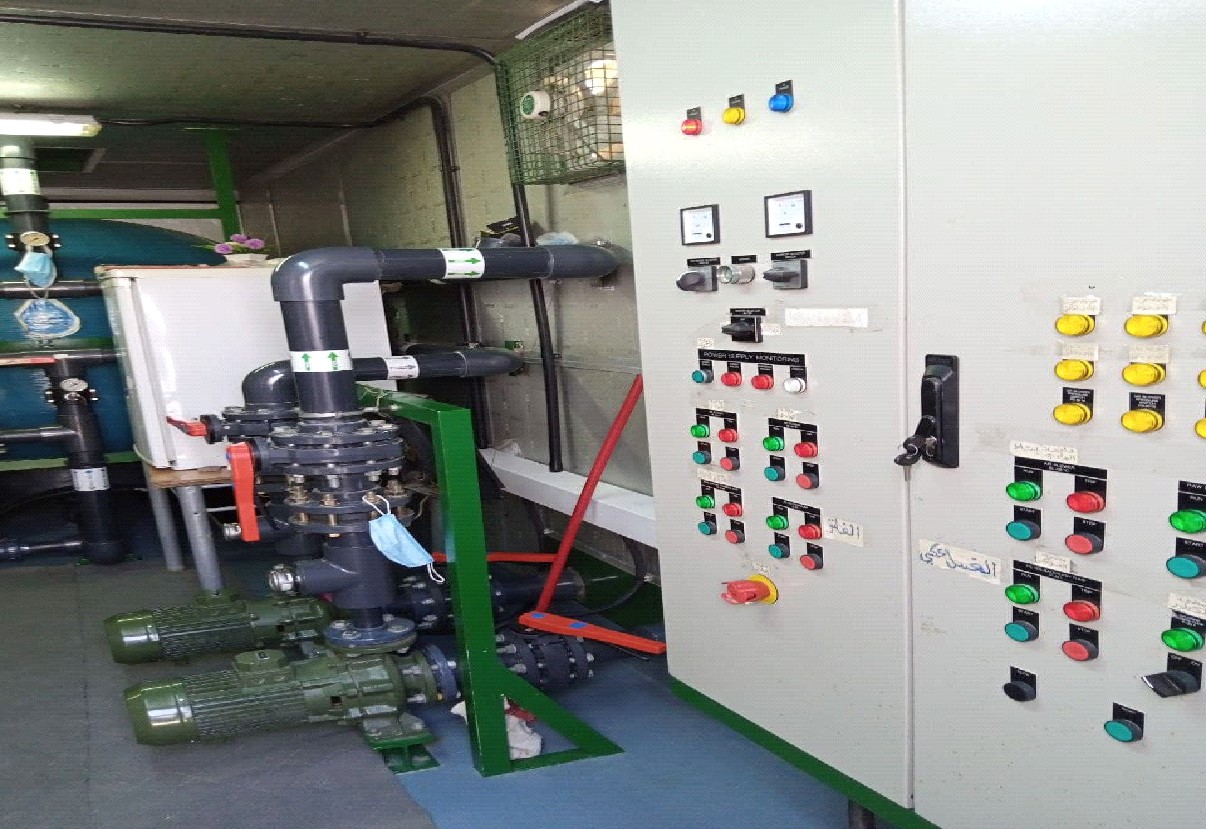
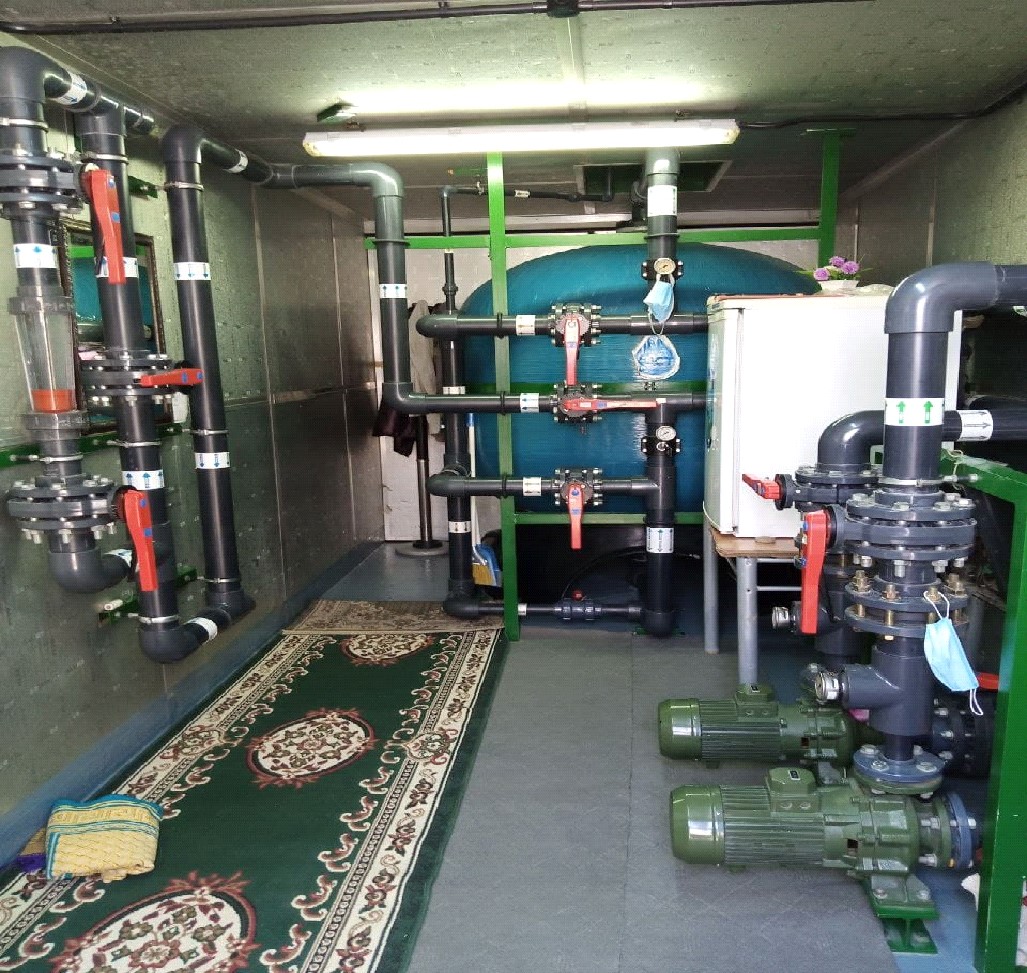
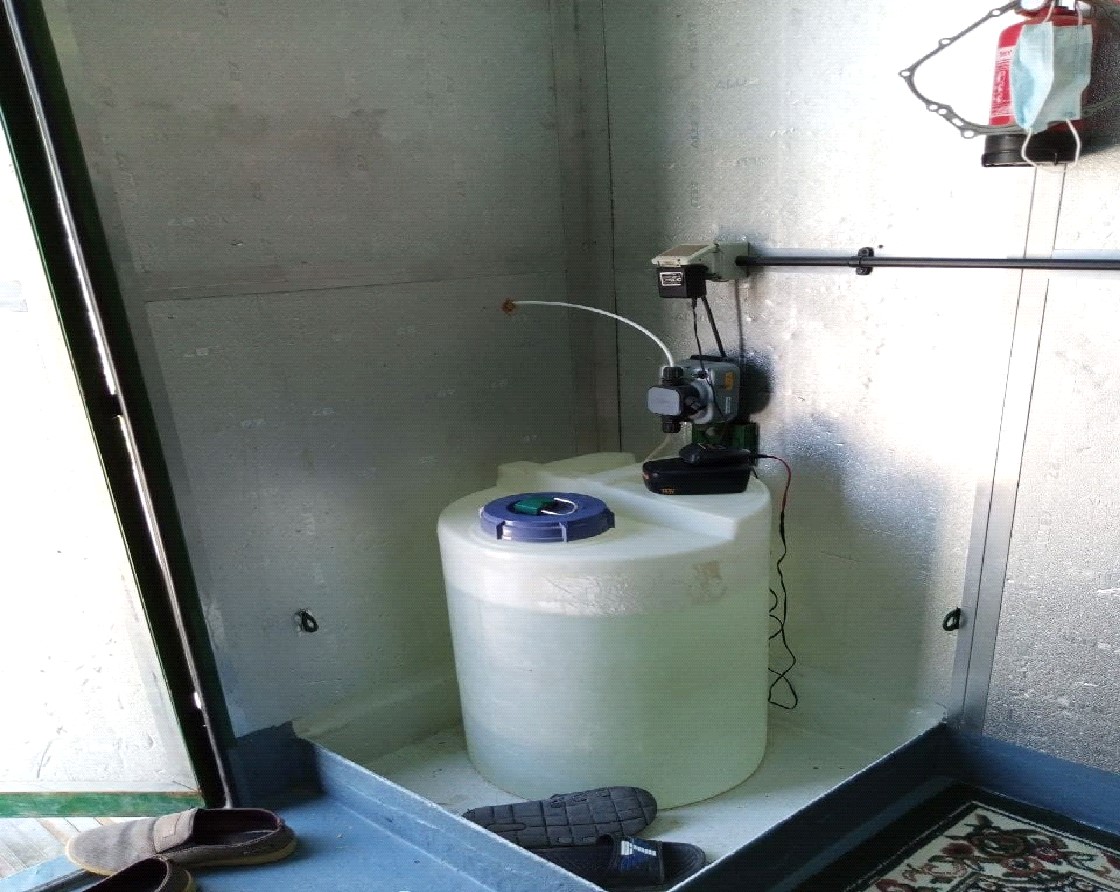
●Water pollution control in campus area
The University of Warith Al-Anbiyaa is trying to be a plastic-free university and reduce paper waste, as they have been a major source of contaminants of water sources and endangering aquatic life, university researchers are active in research for reducing water contaminations, there are several such policies active in university, other than that university has water treatments plants for recycling rainwater into safe drinking water, as clean drinking water is necessary for sustaining life and due to the contamination of natural freshwater sources.
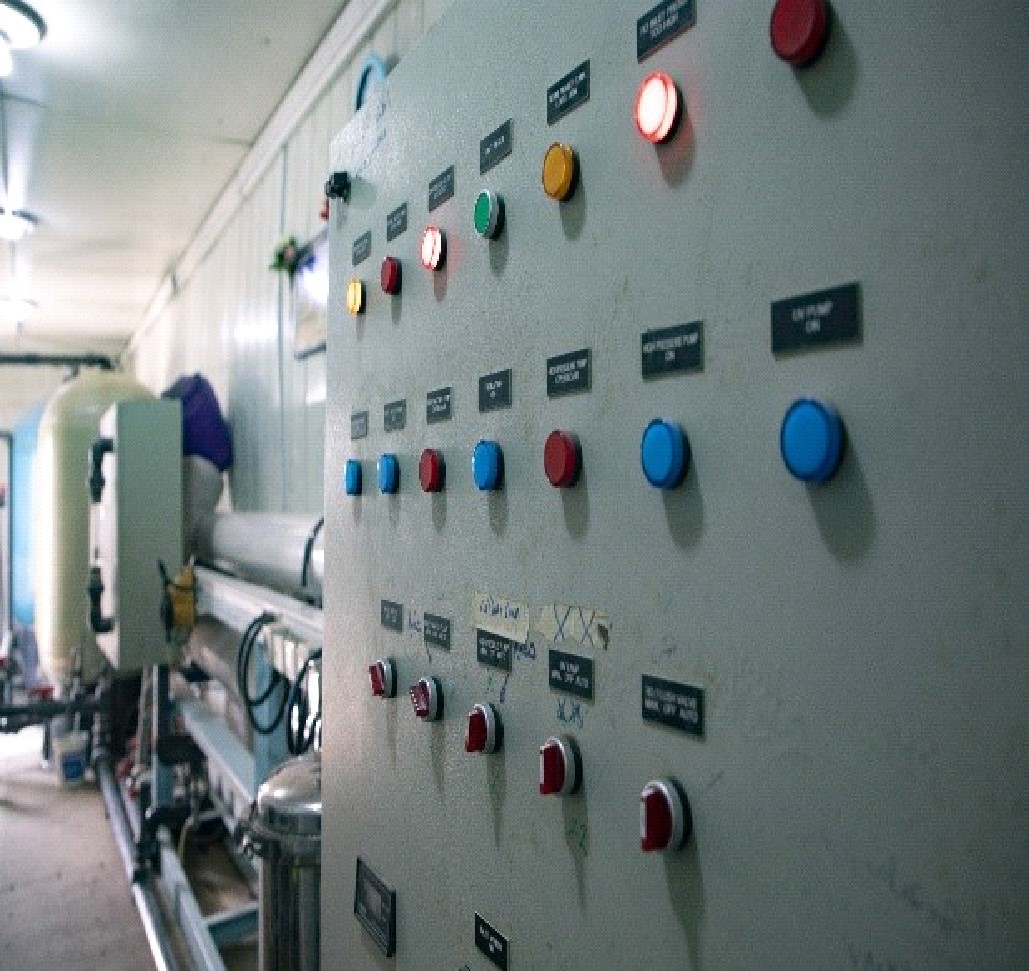 |
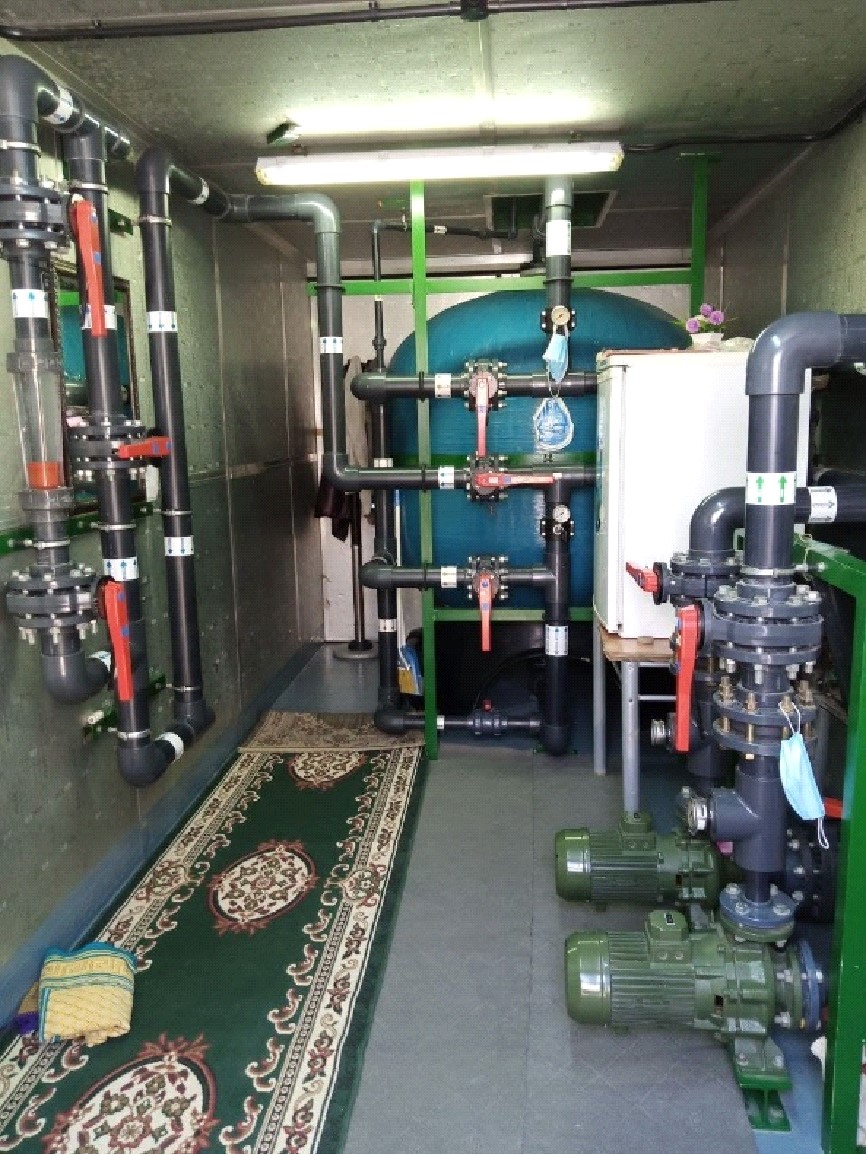 |
the University of Warith Al-Anbiyaa has an integrated system to purify water at the campus. The water system at the university help in improving the process of transforming wastewater into a clean and recyclable source of drinking water. In this system, the water runs through a series of water filters to remove contaminants and debris and transform wastewater into safe drinking water. The policies and the programs that are in place to minimize contamination of fresh water sources are:
·Paperless office/work in university
·Zero plastic program celebration week
●Water Conservation and Pollution Control
University of Warith Al-Anbiyaa is taking measures to conserve water and stop water pollution, we already have a policy in this regard and we’re on the level of fully implementing this policy in our university and deliver its impact externally, beyond the boundaries of our university as well by the year 2023, we have already done a lot of work, as seen in our report, whoever, we were not able to give all accounts of our work in report, like plantation and research on water.
The images of the policy can be found on the next pages, at the end of this section of the report named SDG 6, this document is in Arabic, and we will upload an English translation.
